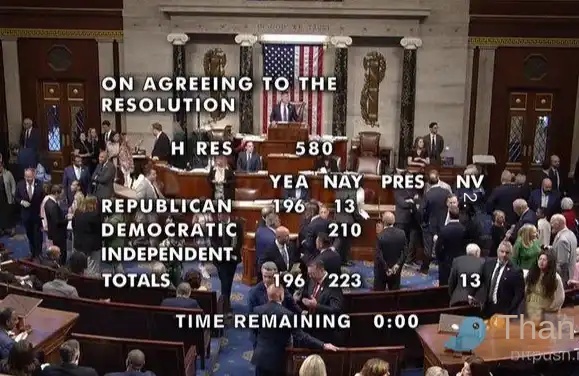Cryptocurrency Companies Flock to the U.S. Stock Market: Has the Investment Thesis of the Crypto Industry Changed?
By 2025, the crypto industry is gradually transitioning from the fringes to the mainstream, with the U.S. capital markets becoming the central stage of this surge. From the listing day of the crypto fintech company Antalpha, where the stock price soared by 70% triggering a circuit breaker, to the imminent inclusion of the leading global exchange Coinbase in the S&P 500, and to the frenzy caused by American Bitcoin, a Bitcoin mining company, going public through a SPAC merger, a wave of crypto companies landing on Nasdaq via IPOs or SPAC mergers has sparked investors' enthusiasm.
At the same time, Wall Street giants such as JPMorgan, Bank of America, and Royal Bank of Canada have sensed the business opportunity and are making moves to get a piece of the pie in the backdrop of the Trump administration strongly supporting the crypto industry. Crypto asset management company Bitwise's latest forecast has added fuel to this surge, claiming that 2025 will be the "Year of Crypto IPOs," with companies like Circle and Kraken poised for action. This wave not only showcases the maturity of the crypto industry but also injects fresh blood into the capital markets.
Crypto Companies Flocking to the U.S. Stock Market
Antalpha is a fintech company focused on crypto asset management, trading, and infrastructure services that made its debut on the Nasdaq Global Market on May 14 with the stock ticker symbol 'ANTA.' On its listing day, Antalpha's stock price skyrocketed by 70% like a rocket, triggering a circuit breaker and eventually closing at the daily limit-up. This debut has not only sparked investors' interest but also marked Antalpha's successful transition from a player in the crypto field to the spotlight of traditional finance.

Simultaneously, Coinbase, the "big brother" of crypto exchanges, is also basking in the limelight. Coinbase is set to be included in the S&P 500 index, becoming the first crypto company to receive this honor. This is not only a recognition of Coinbase but also a milestone acknowledgment of the mainstreaming process of the entire crypto industry. The S&P 500 represents the top companies in the U.S. economy, and Coinbase's inclusion signifies the acceptance of crypto assets by the traditional financial system. Market analysis firm QCP Capital excitedly predicts that this event could be a new "trigger point" for the crypto market, attracting more institutional investors to enter and driving assets like Bitcoin to new highs. As early as 2021, Coinbase's direct listing was handled by top-tier investment banks such as Goldman Sachs and JPMorgan, and now its S&P 500 status further solidifies its position as the industry leader.

In addition to direct IPOs, **SPAC listings** have become a **"fast lane"** for many crypto companies to access the public markets. Among them, the case of **Donald Trump's son**'s Bitcoin mining company American Bitcoin is considered textbook-worthy. As a subsidiary of mining giant Hut 8, American Bitcoin plans to list on **Nasdaq** under the stock ticker **"ABTC"** through a merger with Gryphon Digital Mining. This deal, endorsed by the Trump family, drew significant attention, with Gryphon Digital Mining's stock price surging by 330% upon the news. Hut 8 CEO Asher Genoot boasted that this listing is **"the next big step to accumulating Bitcoin at a low cost"** with the goal of creating a **"Bitcoin bank."** This not only showcases the flexibility of **SPAC listings** but also highlights the political influence in the crypto industry.

Another player, Galaxy Digital, is also stepping up its game. This crypto asset management company is planning to list on **Nasdaq** on May 16 and is currently awaiting final approval at a shareholder meeting. Galaxy Digital's business spans trading, investing, and consulting, aiming to provide crypto financial services to institutions and high-net-worth clients. However, its **Q1 2025 financial report**, showing a **$2.95 billion loss**, dampened investor enthusiasm. Nevertheless, the market remains optimistic about its listing prospects, with investors looking forward to its long-term potential.
Furthermore, Amber International made its debut on **Nasdaq** under the stock ticker **"AMBR"** through a **merger listing**, further enriching the public market landscape for crypto companies. Companies like Gemini (the crypto platform backed by the Winklevoss twins), Bullish (an exchange endorsed by Peter Thiel), Circle Internet Financial, and Kraken have also hinted at **IPO plans**, potentially materializing as early as **2025**.
Bilateral Dash?
Behind the frenzy of going public, there is not only the inherent drive of the crypto industry but also the strong entry of Wall Street giants. For a long time, traditional financial institutions have maintained a wait-and-see attitude towards the crypto market, as the high risks and regulatory pressures have held them back. However, the advent of the Trump administration completely changed the rules of the game. Trump, who dubbed himself the "Crypto President," pledged to make the United States the "global capital of crypto," quickly signed executive orders on digital assets upon taking office, and pushed for the establishment of a crypto task force led by industry advocate Hester Peirce within the SEC. White House Crypto Czar David Sacks even researched the feasibility of creating a national Bitcoin reserve. These policies, like a shot in the arm, cleared obstacles for crypto companies to go public and ignited Wall Street's enthusiasm.
Morgan Stanley is a pioneer in this transformation. According to insiders, this previously low-key investment bank in the crypto field is actively reaching out to potential clients, eager to handle IPOs for crypto companies. In 2024, Morgan Stanley assisted Coinbase in issuing convertible bonds and was hired by IREN to explore monetization opportunities in the AI data market. Now, it is gearing up and preparing to show its prowess in the IPO frenzy. Bank of America is similarly unwilling to fall behind, with its investment banking executives discussing how to drive digital asset trading business and aiming at a market cake worth billions of dollars. CEO Brian Moynihan declared in an early 2025 CNBC interview that once regulations are clear, the bank will go "all in" in the trading sector.

Royal Bank of Canada (RBC) is also moving at full speed. At the end of 2024, RBC assisted crypto mining company Core Scientific in issuing convertible bonds. Its official website data shows that since the 2024 U.S. election, market activity by crypto issuers has surged. Although RBC started relatively late, it is cautiously accelerating its layout. In addition, investment banks such as Jefferies Financial Group, Moelis & Co., and Cantor Fitzgerald are also emerging in crypto trading. For example, Jefferies is advising on the potential listing of Bullish in partnership with JPMorgan Chase and is assisting Figure Technologies in preparing for an IPO. Even HSBC has quietly taken action, with its senior FX strategist adding the title of "Head of Digital Asset Research," indicating that traditional finance's interest in the crypto sector is heating up across the board.

The "Crypto IPO Boom": What's Behind It?
The crypto industry is advancing towards maturity. After more than a decade of ups and downs, cryptocurrency has evolved from a "wild west" speculative asset to a key player in the global financial system. The inclusion of Coinbase in the S&P 500 and the successful listings of Antalpha indicate a significant increase in traditional finance's acceptance of crypto companies. Going public not only enhances a company's reputation but also attracts more institutional funds to the industry.
Bitwise's latest forecast boldly claims that 2025 will be the "year of crypto IPOs" and points out three major drivers fueling this trend: active involvement of regulatory bodies, support from institutional investors, and strong demand from retail investors.
Firstly, the improvement in the regulatory environment is key. In the past, the SEC's rigorous scrutiny led to many IPO plans being shelved, and banks were required to pause crypto activities. Typically, a company would publicly file its S-1 document 6 to 8 months after submitting a draft, but the complexity of the crypto industry has made the process unpredictable. The pro-crypto policies of the Trump administration have given companies the green light, and the SEC's newly formed crypto task force is expected to expedite approvals, paving the way for IPOs by companies like Circle, Kraken, Figure, Anchorage, and Chainalysis.
Secondly, funding needs are a core driving force. Crypto companies often require substantial capital, such as mining companies purchasing expensive ASIC miners, exchanges upgrading their technology platforms, and asset management firms developing new products. Going public provides these companies with a direct funding channel to cope with market fluctuations and accelerate expansion. For example, the American Bitcoin Plan aims to grow its mining business through private funding, while Galaxy Digital hopes to use the IPO to ease financial pressure.
Lastly, investor enthusiasm has injected strong momentum into the frenzy. The entry of Wall Street giants indicates that crypto is no longer on the fringes as before. The strategic shifts of JPMorgan and Bank of America, the active participation of Goldman Sachs and JPMorgan in Coinbase and Bullish trades, all demonstrate the growing confidence of institutions in crypto companies. This support not only provides companies with professional financial services but also attracts more institutional funds into the market. The first-day limit-up of Antalpha and the soaring stock price of Gryphon Digital Mining showcase the market's enthusiasm for crypto companies. Sol Strategies and Exodus are planning to list on the Nasdaq and NYSE American markets, further fueling investor enthusiasm. Bitwise points out that more crypto companies going public will attract retail investors to participate in the industry through the stock market without needing to directly hold crypto assets, rebuilding trust and unlocking significant capital.
The Mainstreaming of Crypto: Does It Really Affect Coin Prices?
In the long run, this wave of IPOs will accelerate the mainstreaming of the crypto industry. The SPAC status of Coinbase, Antalpha's successful listing, Wall Street's entry, and Bitwise's prediction of the "Crypto IPO Year" mark the integration of crypto assets into traditional portfolios, shedding the "speculative" label. With more companies going public, the industry will attract more institutional and retail funds, further expanding the market size. Bitwise points out that public companies will lower the barrier to entry for investors through the stock market, enhancing transparency and trust.
Simultaneously, the wave will intensify industry competition. Exchanges, mining firms, and asset management companies will compete to innovate, offering lower trading fees, more efficient mining technology, or more diverse financial products. This competition will benefit consumers and enhance industry competitiveness. The professionalization of Wall Street will also drive market standardization.
On a global scale, the IPO frenzy in the United States may trigger a chain reaction, inspiring crypto companies in Canada, Europe, and other regions to follow suit, forming a global crypto capital market. This will drive industry globalization, providing investors with more opportunities.
This IPO frenzy will profoundly reshape the crypto market, bringing both opportunities and risks. From a positive perspective, the frenzy has greatly boosted market confidence. Coinbase's inclusion in the S&P 500 signals industry maturity, potentially attracting more traditional investors, driving up crypto asset prices. The listing plans of Antalpha, Amber International, Gemini, and other companies demonstrate the appeal of crypto companies in the public market. Bitwise emphasizes that the public market will compel companies to disclose more financial data, increase transparency, and reshape investor trust.
Furthermore, the frenzy will drive industry consolidation. Reverse mergers provide a shortcut for small and medium-sized enterprises to enter the public market, lowering the IPO threshold. For example, American Bitcoin quickly achieved its listing goal through a merger. This model may incentivize more companies to follow suit, accelerating resource consolidation and optimizing market structure. The involvement of Wall Street investment banks will also enhance trade professionalism, injecting more capital into the industry.
Technological advancement and infrastructure will also benefit from the frenzy. Once listed, companies can invest in technological innovation. For example, Hut 8 and Bitmain collaborated to develop efficient mining equipment, Coinbase upgraded its trading platform, and Galaxy Digital may introduce new financial products. These initiatives will drive technological progress in the industry and enhance user experience.
However, the risks should not be overlooked. Firstly, financial volatility is a concern. Galaxy Digital's $295 million loss in the first quarter exposed the vulnerability of crypto companies to market fluctuations. Overvaluation may fuel bubbles, and once investor confidence wavers, stock prices may plummet. Secondly, regulatory uncertainty still exists. Although current policies are lenient, future regulatory changes could impact listed companies, especially under SEC scrutiny. Lastly, market speculation overheating may exacerbate volatility. Gryphon Digital Mining's stock price surge of 330% highlights the speculative nature, potentially leading to market instability.
Welcome to join the official BlockBeats community:
Telegram Subscription Group: https://t.me/theblockbeats
Telegram Discussion Group: https://t.me/BlockBeats_App
Official Twitter Account: https://twitter.com/BlockBeatsAsia
 Forum
Forum OPRR
OPRR Finance
Finance
 Specials
Specials
 On-chain Eco
On-chain Eco
 Entry
Entry
 Podcasts
Podcasts
 Activities
Activities









